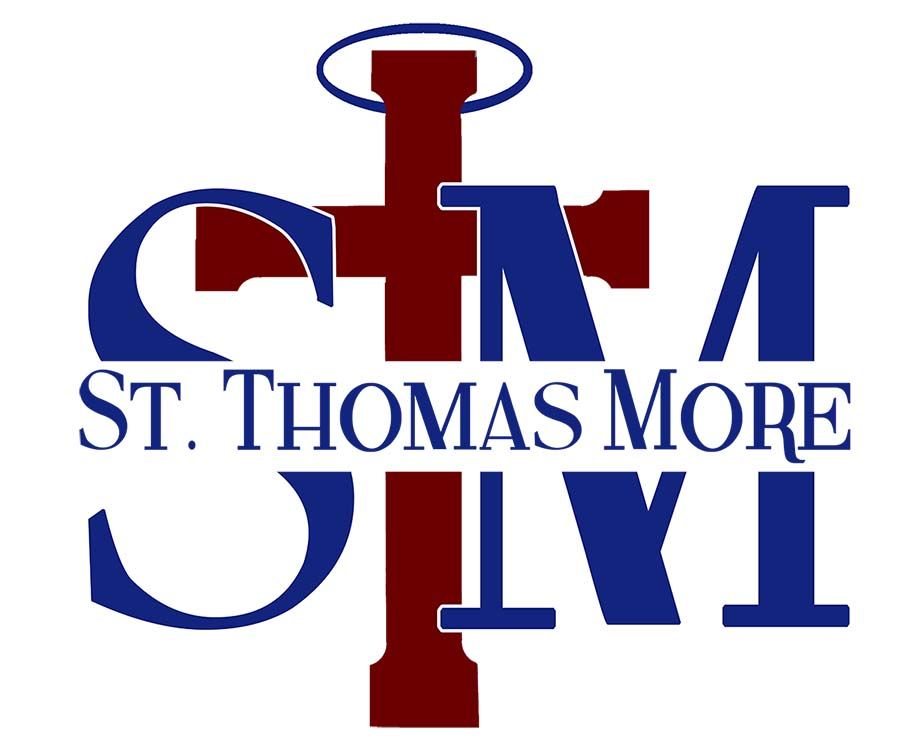Marriage
God created man and woman out of love and commanded them to imitate his love in their relations with each other. Man and woman were created for each other…Woman and man are equal in human dignity, and in marriage both are united in an unbreakable bond. (United States Catholic Catechism for Adults, Ch. 21, p. 279)
Marriage is a Covenant
Marriage Reflects the Holy Trinity
Guidelines for Marriage Preparation for Those Not Married
1. One must be at least 19 years of age in order to celebrate the sacrament of Marriage. Anyone younger that 19 must fulfill other guidelines set down by the Bishops of Texas for the purpose of assessing their maturity and readiness for marriage.
2. One must be "free to marry." This means that neither partner can have a previous marriage which is recognized as valid and still binding by the Catholic church. When there has been a previous marriage, couples should discuss this with the priest before setting any date for a wedding.
3. Couples who are "free to marry" should meet with the parish priest to schedule their wedding at least six months in advance in order to set the date and time and to have adequate time for marriage preparation. One of the parties must be a registered member of St. Patrick's Church or the couple must have a letter of permission from their own pastor to marry at St. Patrick's Church.
4. Baptized Catholics must obtain a recent copy of their baptismal certificate. Baptized non-Catholics, when possible, should also obtain some documentation verifying their baptism.
5. For the Catholic party, it is recommended that he or she should have already received all three Sacraments of Initiation - Baptism, Confirmation and Holy Eucharist. If they have not, then the priest preparing them will assess what can be done to prepare them.
6. Couples entering the Sacrament of Marriage should be able to affirm that they have the following intentions: that they are acting freely, that they intend a life-long marriage, that they intend to be faithful to their spouse, and that they intend to give their spouse the right to have children, when this is possible.
7. In cases where a Catholic is marrying a non-Catholic christian or a non-baptized person, the Catholic party must also have the intention of continuing to practice the Catholic faith and willingness to do all within his or her power to have their children baptized and raised as Catholics. Their future spouse also needs to be aware of this intention.
8. As part of their marriage preparation, every couple will be asked to take and review with the priest a marriage preparation survey called the FOCCUS. They must also attend a one-day Pre-Cana Conference and at least one of the other two options listed below.
Pre-Cana, required for all by the Bishop
Engaged Encounter Weekend (Option 1 - through the Diocese)
Sponsor Couple (Option 2 - through the parish)
9. The times for weddings at St. Patrick's Parish are anytime on a weekday not in conflict with an already scheduled Mass, or on Saturdays from 10:00 a.m. to no later than 3:00 p.m.
The wedding offering for the Church is will be discussed with the pastor.
For questions about any of the above or any other questions, please speak with the parish priest.
Sacrament of Marriage for Those Already Civilly Married
The Catholic Church teaches that a baptized Catholic is obliged to be married in front of a prest and two witnesses in order to contract a valid, sacramental marriage. Therefore, a Catholic who marries in front of a Justice of the Peace, judge or other civil magistrate is not considered validly married. A Catholic who marries in front of a non-Catholic minister is also not considered validly married unless a special dispensation has been given by the Diocesan Bishop for such a marriage. Catholics who are not married in the Church are considered to be living in mortal sin and therefore unable to receive the sacraments of the Church, especially Holy Eucharist.
A common error in thinking is that getting married in the Church costs a lot of money or has to be a big production. Wrong! For two persons who are free to marry - meaning they have never been married before to anyone else or, as Catholics, their previous marriage was not in the Catholic Church and, therefore, not considered a valid marriage - getting married in the Church is not that difficult. It requires getting copies of the baptismal certificates of the Catholi party or parites, some marriage preparation depending on the age and time the couple has been married civilly, and finally a ceremony. The ceremony requires only the presence of the priest, the couple, and two witnesses. If a couple wishes something more inclusive, they can add parents, family members and friends. The wedding can be small and intimate or a full blown traditional wedding. Couples can make whatever donation to the Church they are able.
When there has been a previous marriage in the Catholic Church or a previous marriage by a non-Catholic party outside the Catholic Church, then there may be a need to begin an investigation for grounds of nullity to the previous marriage. This can only be assessed after visiting with one of the parish priests.




